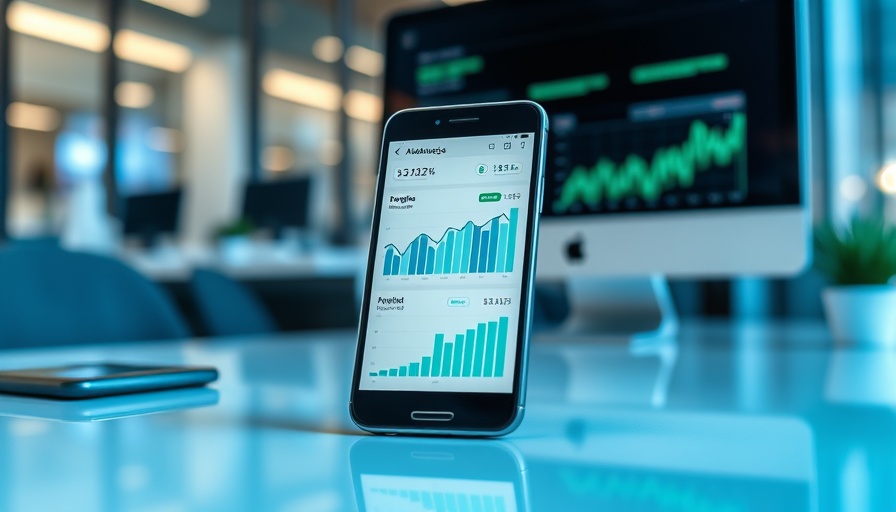
Understanding Mobile-First SEO: The New Normal in 2025
As we move deeper into the digital age, the way we consume information is evolving dramatically. The shift toward mobile-first SEO isn't just a trend; it's a monumental change in how websites are structured, how content is delivered, and how marketers engage with their audiences. With Google prioritizing mobile versions of websites for indexing and ranking, understanding this dynamic has never been more crucial for businesses aiming to thrive online.
The Impact of Mobile-First Indexing on SEO Strategies
Google's embrace of mobile-first indexing stems from an undeniable shift in user behavior. According to research, mobile devices account for over 50% of all web traffic globally. This trend is expected to continue rising, which prompts Google to validate that mobile compatibility is paramount for today’s websites. A poorly optimized mobile site can lead not just to lower rankings but dramatically reduced traffic and engagement. Marketers must therefore adapt their entire SEO strategies to prioritize mobile formats, ensuring that content is not only accessible on phones but also engaging and easy to navigate.
Essential Mobile SEO Tools for the Modern Marketer
To successfully implement a mobile-first strategy, leveraging the right tools is imperative. Many advanced mobile SEO tools assist marketers in determining how effectively their websites perform on mobile devices. These tools assess various elements such as load times, mobile usability, and overall user experience. Well-known platforms, like SEMrush and Google’s Mobile-Friendly Test, evaluate site performance and provide actionable insights to improve responsiveness and load speeds. With the aid of these tools, businesses can refine their mobile interface, address potential issues proactively, and ensure a seamless user experience, ultimately increasing their competitive edge.
Revolutionizing User Experience: Quality Over Quantity
In 2025 and beyond, the notion of user engagement will revolve around quality rather than just quantity of traffic. Google rewards sites that provide users with a positive experience on their mobile devices. This means websites must not only be fast but also informative and enjoyable to navigate. Creating high-quality, mobile-friendly content that engages users will not only enhance visibility but will also build loyalty and encourage repeated visits. Therefore, businesses must prioritize creating responsive design, improving site speed, and curating engaging content tailored specifically for mobile audiences.
Future Predictions: AI and Machine Learning in Mobile SEO
As technology advances, the role of AI and machine learning in optimizing mobile SEO strategies will become increasingly significant. Tools powered by AI can analyze user data to predict trends in behavior and preferences, allowing marketers to adapt their strategies in real-time. With AI-driven insights, businesses can craft tailored mobile experiences that resonate with their audience, leading to improved engagement and higher conversion rates.
Embracing the Change: Practical Tips for Marketers
To navigate the transition toward mobile-first SEO effectively, marketers should adopt these best practices:
- Focus on Responsive Design: Ensure your website adjusts seamlessly to different screen sizes for improved usability.
- Optimize Load Times: Use compression tools for images and minify CSS/JavaScript to enhance loading speeds.
- Utilize Local SEO: Optimize for local search results to connect with users searching for nearby services.
- Regularly Audit Your Mobile Site: Employ mobile SEO tools to check your site's performance frequently.
- Craft Mobile-Specific Content: Tailor your content specifically for mobile users to enhance engagement.
Conclusion: The Essential Shift Towards Mobile-First
The transition to mobile-first SEO in 2025 is more than a recommendation; it has become an essential strategy for digital success. As Google continues to emphasize mobile compatibility, moving to prioritize mobile versions of content is no longer a choice but a necessity for marketers. By adopting mobile-first practices, investing in advanced mobile SEO tools, and focusing on user experience, businesses can secure their place in an increasingly mobile-driven world.
 Add Row
Add Row  Add
Add 




Write A Comment